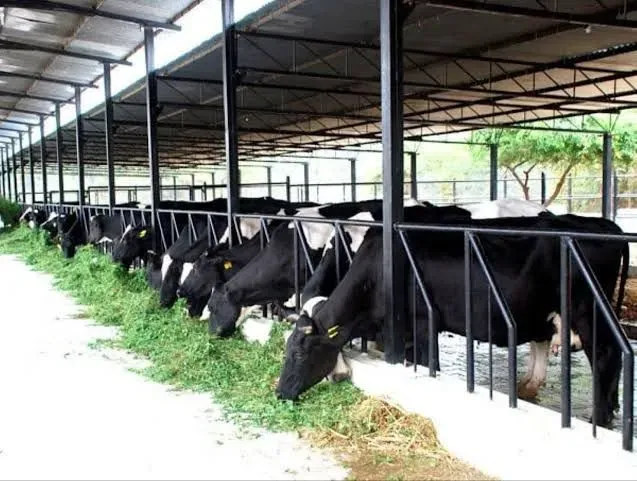Is the ₹90 crore high-tech dairy plant in TN's Namakkal set to revolutionize milk processing?

Synopsis
Key Takeaways
- The ₹90 crore dairy plant in Namakkal is nearing completion.
- 80% of construction is already finished.
- The plant will process 2 lakh litres of milk daily.
- It will benefit over 15,000 dairy farmers.
- Indicates a shift towards modern dairy processing technology.
Chennai, Aug 2 (NationPress) A ₹90 crore high-tech dairy processing facility in Namakkal is on the verge of completion, with approximately 80% of the construction already finalized, marking a significant advancement for the region's dairy industry.
Supported by the National Dairy Development Board (NDDB), this project is slated to initiate trial operations in November 2025 and is expected to commence full-scale production by January 2026.
Upon becoming operational, the plant will boast a capacity to process 2 lakh litres of milk daily, positioning it as one of the largest and most cutting-edge dairy facilities in Tamil Nadu.
This fully automated unit will manage every phase of milk processing — from chilling and pasteurization to packaging and dispatch — ensuring maximum efficiency and quality throughout the supply chain.
Project officials have stated that aside from the civil construction nearing completion, 90% of the necessary machinery has been acquired, with 40% already installed onsite.
Departments have been instructed to expedite the remaining tasks to adhere to the timeline for both trial and full operations.
The facility is expected to provide direct benefits to over 15,000 dairy farmers in the district by streamlining milk procurement and ensuring prompt payments.
With faster processing and decreased spoilage, farmers will experience boosts in both income and operational efficiency.
Moreover, the facility is projected to generate indirect employment for approximately 1,000 individuals in related sectors such as transportation, packaging, maintenance, and quality control.
For consumers, this plant guarantees a more dependable supply of Aavin milk and dairy products.
Approximately 4 lakh individuals in Namakkal and surrounding regions are anticipated to benefit from reduced delivery delays and fewer shortages, particularly during peak demand periods such as festivals.
Authorities assert that the Namakkal plant is poised to serve as a benchmark for modern dairy infrastructure in Tamil Nadu.
By integrating state-of-the-art technology with a commitment to farmer welfare, this initiative aims to bolster the state's milk supply chain while enhancing rural livelihoods and employment.









